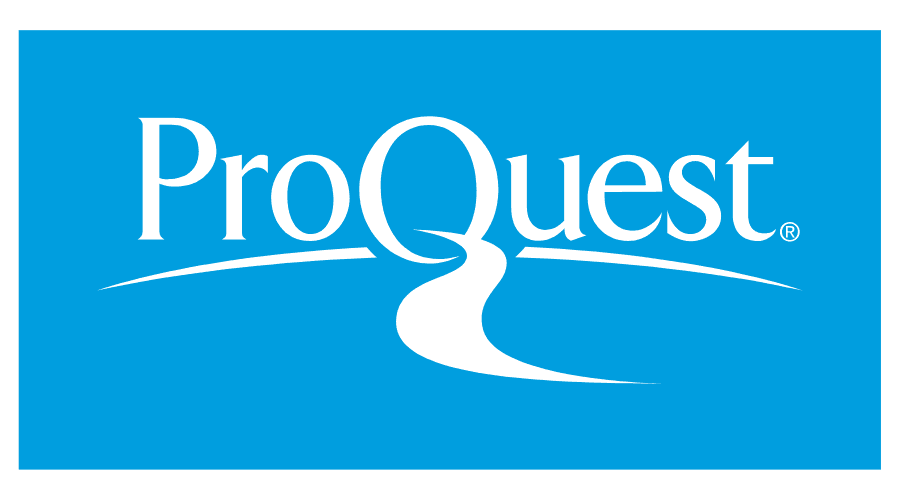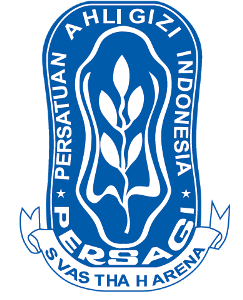Nutrition Knowledge Determinants among Undergraduate Students in Selected University in Jakarta
DOI:
https://doi.org/10.21776/ub.ijhn.2021.008.01.7Keywords:
nutrition education, undergraduate students, malnutrition, IndonesiaAbstract
Malnutrition problem (under and over nutrition), known as the double burden of malnutrition, was a growing concern in developing countries, including Indonesia. The 2018 Indonesia Basic Health Survey noted a substantial increase in the proportion of these nutritional impairments. As a fundamental factor of malnutrition, nutritional knowledge was expected to be occupied not only by vulnerable groups. A transitional age group like youth, in this case undergraduate students, should also be on the radar since they carried a risk of malnutrition from adolescence into adulthood. This study aimed to assess the nutritional knowledge determinants among undergraduate students in Jakarta. This cross-sectional study was conducted among undergraduate students in Universitas Pembangunan Nasional Veteran Jakarta. The nutritional knowledge regarding the Indonesian Guideline for Balance Diet, as well as participants’ characteristics questionnaire, was self-administered online by 235 participants using Google Form. Chi-Square, Spearman’s rho, and logistics regression tests were used to analyze the data using statistical software. Students who participated in this study were primarily female, aged under 20 years, achieve a GPA above 3.50, and had normal BMI. The bivariate analysis reported a significant association between sex, study field, and parent’s income with nutrition knowledge level. Based on logistic regression, the odds of having an adequate nutrition knowledge level is about 2.76 times higher among students whose parents earned 3-5 million IDR per month than students whose parents earned less than 3 million or more than 5 million IDR. Undergraduate students were also a prominent target group to ensure nutritional knowledge occupancy since they may face adolescent nutritional problems and future risk of adult nutritional problems. This study is fostering targeted nutrition education for youth undergraduate students.
References
- Verma M, Hontecillas R, Tubau-Juni N, Abedi V, Bassaganya-Riera J. Challenges in Personalized Nutrition and Health. Front Nutr. 2018;5(November).
- Maehara M, Rah JH, Roshita A, Suryantan J, Rachmadewi A, Izwardy D. Patterns and Risk Factors of Double Burden of Malnutrition Among Adolescent Girls and Boys in Indonesia. PLoS One. 2019;14(8):15–8.
- Ministry of Health of Indonesia. National Basic Health Research (Riskesdas). Jakarta: Indonesian Ministry of Health; 2019. 582–583 p.
- Bloem S, de Pee S. Developing Approaches to Achieve Adequate Nutrition Among Urban Populations Requires An Understanding of Urban Development. Glob Food Sec. 2017;12(February):80–8.
- Colozza D, Avendano M. Social Science & Medicine Urbanisation, Dietary Change and Traditional Food Practices in Indonesia : A Longitudinal Analysis. Soc Sci Med. 2019;233(June):103–12.
- UNICEF. UNICEF’s Approach To Scaling Up Nutrition For Mothers And Their Children. New York: Discussion Paper. Programme Division, UNICEF; 2015. 8–10 p.
- Mazzoni D. The Association between the Level of Nutrition Knowledge and Body Mass Index among College Students. Diss D’youv Coll. 2018;
- Zhang Y, Ji M, Zou J, Yuan T, Deng J, Yang L, et al. Effect of A Conditional Cash Transfer Program on Nutritional Knowledge and Food Practices Among Caregivers of 3 – 5-Year-Old Left-Behind Children in The Rural Hunan Province. Int J Env Res Public Heal. 2018;15(3):1–12.
- Yahia N, Brown CA, Rapley M, Chung M. Level of Nutrition Knowledge and Its Association with Fat Consumption among College Students. BMC Public Health. 2016;16(1):1–10.
- Amalia SN dan L. Pengetahuan Gizi , Aktivitas Fisik , Dan Tingkat Kecukupan Gizi. J Gizi dan Pangan. 2012;7(November):151–6.
- Utami A, Pujonarti SA. The Association between Knowledge and Practice of Indonesian Balance Diet Guideline Pillar and Other Factors with Nutritional Status of Undergraduate Nutrition Student Faculty of Public Health Universitas Indonesia in 2019. In: The 3rd Faculty of Public Health UI Science Festival 2019. Depok: Faculty of Public Health, Universitas Indonesia; 2019. p. 361–70.
- Ogston SA, Lemeshow S, Hosmer DW, Klar J, Lwanga SK. Adequacy of Sample Size in Health Studies. Vol. 47, World Health Organization. West Sussex, England: John Wiley & Sons Ltd.; 1991. 347 p.
- Quaidoo EY, Ohemeng A, Amankwah-Poku M. Sources of Nutrition Information and Level of Nutrition Knowledge among Young Adults in The Accra Metropolis. BMC Public Health. 2018;18(323):1–7.
- Li C-P. Gender Differences in Nutrition Knowledge, Attitude, and Practice among Elderly People. Int J Manag Econ Soc Sci. 2017;6(Special Issue):199–211.
- Youn J-H, Park S, Lee J-Y, Cho S-J, Kim J, Ryu S-H. Cognitive Improvement in Older Adults with Mild Cognitive Impairment: Evidence from a Multi-Strategic Metamemory Training. J Clin Med. 2020;9(2):362.
- Pillai KG, Liang YS, Thwaites D, Sharma P, Goldsmith R. Regulatory Focus, Nutrition Involvement, and Nutrition Knowledge. Appetite. 2019;137(March):267–73.
- Makiabadi E, Kaveh MH, Mahmoodi MR, Asadollahi A, Salehi M. Enhancing Nutrition-Related Literacy, Knowledge and Behavior among University Students: A Randomized Controlled Trial. Int J Nutr Sci. 2019;4(3):122–9.
- Hong MY, Shepanski TL, Gaylis JB. Majoring in Nutrition Influences BMI of Female College Students. J Nutr Sci. 2016;5(8):1–7.
- Medina CR, Urbano MB, De Jesús Espinosa A, López ÃT. Eating Habits Associated with Nutrition-related Knowledge among University Students Enrolled in Academic Programs Related to Nutrition and Culinary Arts in Puerto Rico. Nutrients. 2020;12(5).
- Heshmat R, Salehi F, Qorbani M, Rostami M, Shafiee G. Economic Inequality in Nutritional Knowledge, Attitude and Practice of Iranian Households : The NUTRI-KAP Study. Med J Islam Repub Iran. 2016;30(426).
- Lixin A, Jun P, Yang T, Abdul A, Seelan S. Nutrition Labelling Use and Its Associated Factors Among Medical Students : A Cross-sectional Study. Int J Biomed Clin Sci. 2020;5(3):153–64.
- Ihensekhien I, Busari O, Adedeji CE, Salami LI. Socio-Economic Status and Gender as Determinant of Dietary Practices of Secondary School Students’ by Exposure to Pictorial Nutrition Education for Sustainability. J Heal Sci. 2019;7:29–36.
- Anderson AS, Good DJ. Increased Body Weight Affects Academic Performance in University Students. Prev Med Reports. 2017;5:220–3.
- Stajic D, Popovic B, Cpajak M, Ribaric S, Djonovic N. Is There An Association between Nutritional Status and Intellectual Capabilities of Adolescents? Prog Nutr. 2018;20:279–89.
- Nadhifah SL, Yuniastuti A, Pukan KK. The Relationship between Nutritional Status and Learning Pattern with Learning Outcomes of Biology Student of Universitas Negeri Semarang. J Biol Educ. 2018;7(1):64–72.
Downloads
Published
How to Cite
License

This work is licensed under a
Creative Commons Attribution-NonCommercial 4.0 International License




















